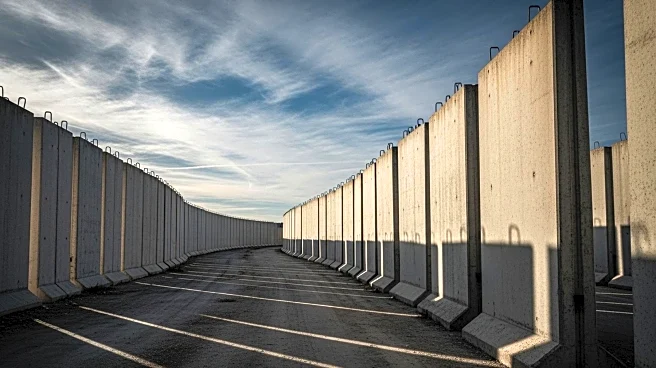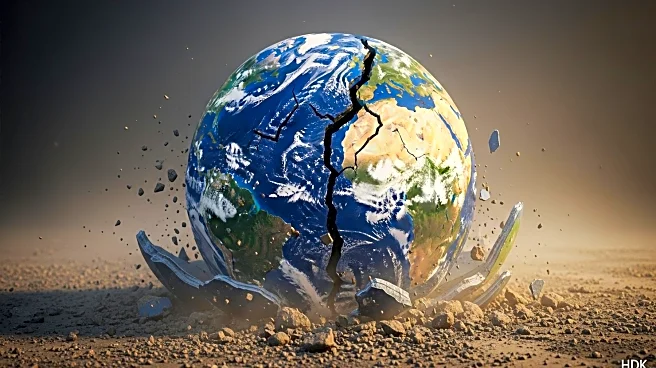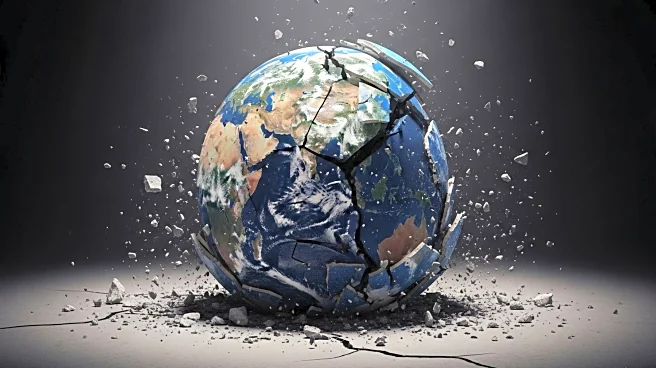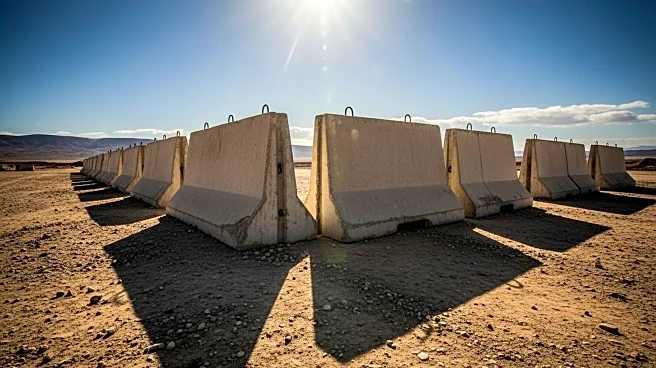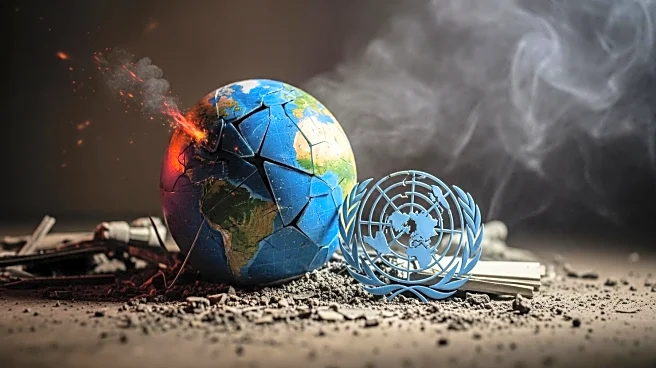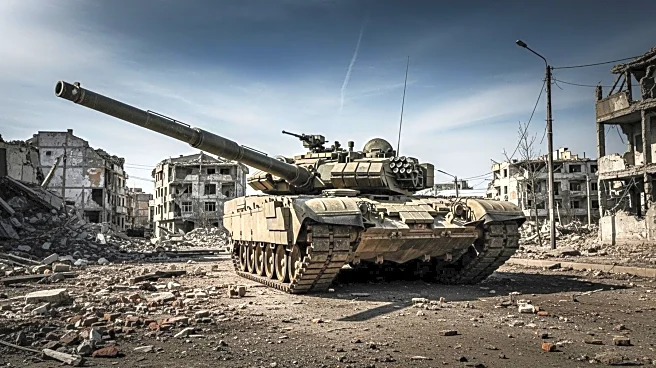What's Happening?
A devastating landslide has occurred in the Marra Mountains of Sudan's Darfur region, reportedly killing over 1,000 people. The Sudan Liberation Movement/Army, a rebel group controlling the area, announced the disaster following days of heavy rain. The landslide completely leveled the village of Tarasin, leaving only one survivor. The group has called for international assistance, including from the United Nations, to help recover the bodies of the victims, which include children. This tragedy unfolds amid Sudan's ongoing civil war, which has exacerbated the humanitarian crisis in the region, with famine already declared in parts of Darfur.
Why It's Important?
The landslide in Darfur highlights the severe humanitarian challenges facing Sudan, a country already grappling with a prolonged civil war. The conflict has displaced thousands and created dire shortages of food and medical supplies. The disaster underscores the urgent need for international aid and intervention to address both the immediate aftermath of the landslide and the broader humanitarian crisis. The situation in Darfur is a critical concern for global humanitarian organizations, as the region's instability threatens to further destabilize the area and exacerbate the suffering of its population.
What's Next?
The Sudan Liberation Movement/Army's appeal for international assistance may prompt a response from global aid agencies and the United Nations. Efforts to recover the bodies and provide relief to survivors will be crucial in the coming days. Additionally, the ongoing conflict between the Sudanese army and the Rapid Support Forces (RSF) continues to pose significant challenges to delivering aid and stabilizing the region. The international community's response will be pivotal in addressing both the immediate needs of those affected by the landslide and the long-term humanitarian crisis in Darfur.
Beyond the Headlines
The landslide disaster in Darfur may draw attention to the broader environmental vulnerabilities in conflict zones, where infrastructure is often inadequate to withstand natural disasters. The interplay between environmental and political factors in Sudan could lead to increased scrutiny of how climate change and conflict exacerbate humanitarian crises. This event may also influence international policy discussions on providing aid in conflict-affected regions, highlighting the need for comprehensive strategies that address both immediate relief and long-term stability.



